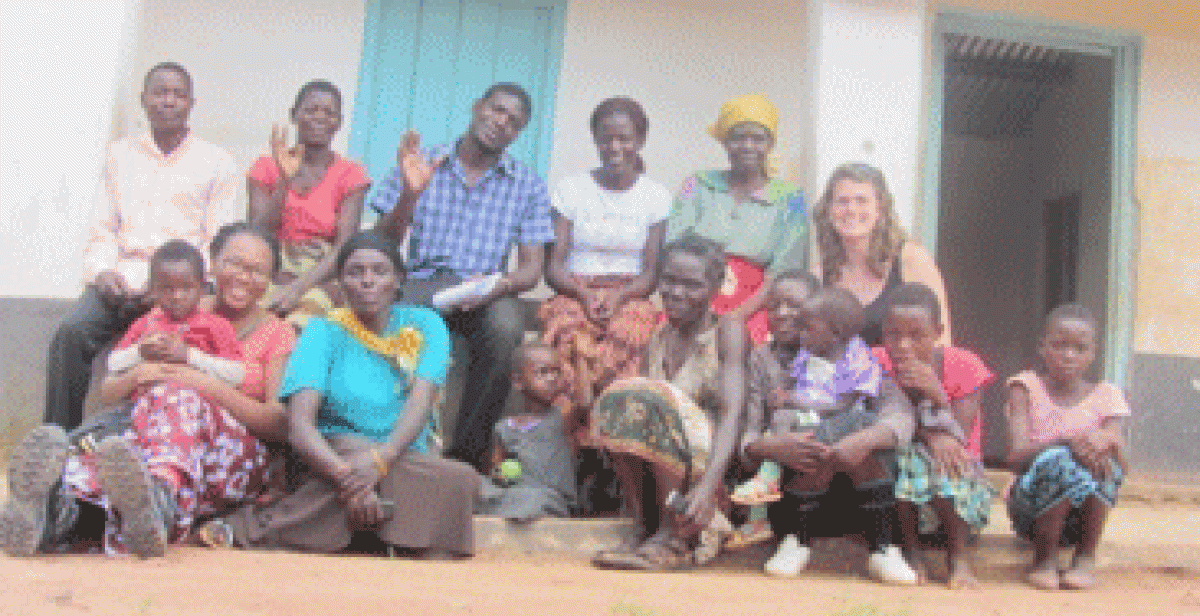A song once said “I believe that children are the future” it was a well-known song by Whitney Houston. The words ring true no matter who is singing them. With Ungweru we have been assessing 10 Community Based Child Care Centers (CBCCs) to assess which centers would benefit most from being supported with milk producing goats. These centers were originally set up to help look after those children who had, or had parents living with, HIV and AIDS. However, these centers now serve any child who is not guaranteed one meal a day at home as the centers try to provide porridge for all children. On a surveying trip to the community we met several caregivers at their CBCCs. The caregivers who work at the CBCCs work on a voluntary basis, the average number of caregivers is 3, and they are often women. These women don’t get paid for their time and often have to juggle the work they do at home with the care they give to the children in the community.
Some CBCCs are provided with Nutritional Supplements from foreign charity organizations; as much as these help, they are not a sustainable way to help the children. Eventually the packets run out and then what? The children starve? What Ungweru is doing is supplying the communities with ways to bring in income and to feed the children. We plan to supply them with milk producing goats, this means that the children can get the nutrients they need for their development continuously.
Since landing in Malawi I have been in awe of the way the mothers carry their young. They don’t use pushchairs or carriers, the child is secured on their back using a Chitenge (a wrap), and I have coveted the feeling of carrying someone so young against me. Then one sunny day in February, I accomplished the dream. Hazarh!
Often people will say that in the UK we’ve lost the notion of childhood. They stay out all day playing on the street with your friends until you get called in for lunch and then stayed out until the sun started to set. I think my generation caught the tail end of that time. We were the transition years when video games started to take over and kids started staying in more. So now I find it odd seeing groups of children out, and often then assume that they’re up to no good.
Being out here has been so refreshing. When I get home from work with Ungweru I can often count on my host sister playing outside with her friends. Likewise when we’re out and about it’s not an uncommon occurrence to see groups of primary aged children walking along the main roads unaccompanied on their way to or from school. Something that you are very unlikely to see in London, or elsewhere in the UK.
I went to an after school club throughout my time in primary school. So Afterschool and Day Care are the only things I can think of as being an equivalent to CBCCs. They feed you, look after you and help you with your school work. However the Care Givers at the CBCCs don’t get paid and work on a voluntary basis. Some CBCCs have a rota so it’s not the same people looking after the children all the time, other CBCCs have only two member caregivers. Two adults looking after 30+ under-10s. I’m not jealous of their position; I do however have a great amount of respect for these women who give their time up to look after the next generation. And thinking about it, in the UK I don’t think anyone would do the same for free.
One of the most universal languages out there is the language of play. It doesn’t matter if you cannot understand each other; when it comes to playing, everyone understands. Taking at least 15 minutes out of a teaching session to play with the local children brings a smile to not only my face but theirs. Malawi is known as the “Warm Heart of Africa” and nothing warms my heart more than seeing a happy well looked after child.



